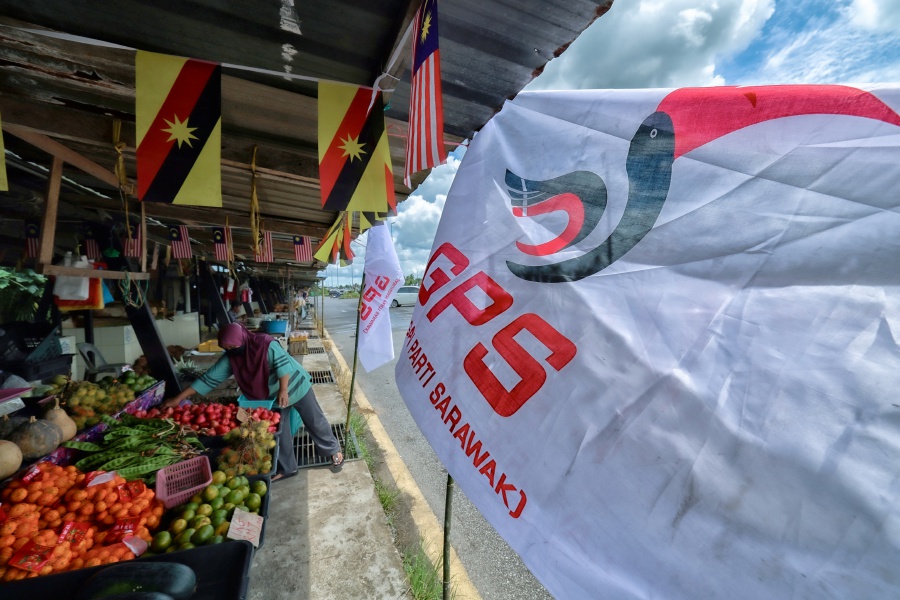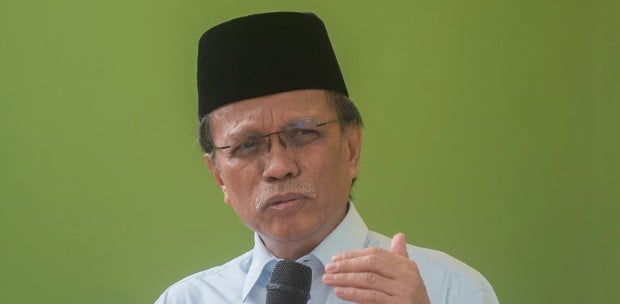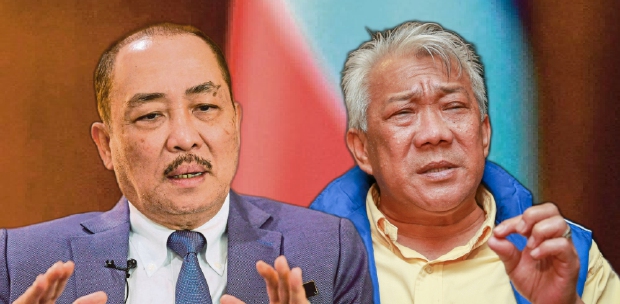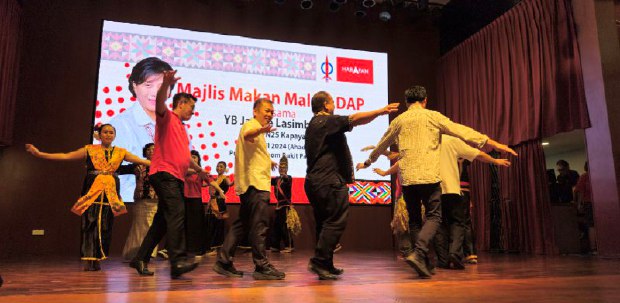KUALA LUMPUR: Coalitions seeking to form alliances after the 15th General Election (GE15) to secure a better majority could look to Sabah and Sarawak.
Analysts believe that the parties in the two states would be the key to any coalition seeking to form the next federal government due to the prospect of a hung parliament.
Barisan Nasional (BN) is likely to seek Gabungan Parti Sarawak's (GPS) aid to form the next federal government if the former fails to secure a commanding majority this Saturday.
Experts said if GPS wins all the 31 parliamentary seats in Sarawak, its numbers would be a boon to coalitions that are desperate for a simple majority.
Analyst Prof Dr Jeniri Amir said for the time being, GPS would be more inclined to work with BN as mentioned by caretaker Prime Minister Datuk Seri Ismail Sabri Yaakob.
"GPS is more comfortable joining hands with BN compared with other parties.
"Of course, there are several (expected) matters to be fulfilled first, including a (significant) number of GPS members of parliament in the federal cabinet, including in the position of deputy prime minister.
"GPS is akin to a blue-chip stock on the bourse. There will be parties vying for its numbers," the National Professors Council senior fellow told the New Straits Times.
Top BN leaders, including chairman Datuk Seri Dr Ahmad Zahid Hamidi and his deputy Datuk Seri Mohamad Hasan,
had said the coalition did not rule out the possibility of mergers with other parties if it failed to secure a majority.
Another analyst, Dr Ainul Adzellie Hasnul, said it was almost certain that BN would form a new partnership with GPS post-GE15 if the polling results were not in its favour.
He said GPS components were formerly with BN and would prefer to work it.
"If BN doesn't win a commanding majority this Saturday, it will work with parties that have the numbers to form a government, and in this case, a coalition government."
As it stands, Ainul said, GPS would be BN's most viable partner instead of Perikatan Nasional (PN) or Pakatan Harapan (PH).
"BN's cooperation with PN will not likely materialise since Pas president Tan Sri Abdul Hadi Awang and Bersatu president Tan Sri Muhyiddin Yassin have clearly stated their objection to this.
"Whatever it is, BN is aiming to win at least 112 seats to form a government on its own."
Experts believe that BN could also count on its cooperation with Gabungan Rakyat Sabah (GRS) to improve its numbers.
Sabah Chief Minister Datuk Seri Hajiji Noor had earlier said that it was confident of securing more than 15 of the 25 parliamentary seats in the state.
Ainul said GRS could also prove to be the ace for BN.
"With the cooperation between BN and GRS, they have a greater chance of winning the election (to form the federal government).
"BN will have an easier platform to form an alliance with GRS through the GRS-BN pact. In a way, GRS is a kingmaker in GE15."
Jeniri said GRS would be comfortable working with BN through their existing pact in the state.
"Of course. GRS has remained comfortable working with BN all this while. They are used to working together."
He also said BN, should it form the government, would likely receive support from Warisan as well.
"Warisan president Datuk Seri Mohd Shafie Apdal had said two months ago that his party would support the federal government of the day.
"So yes, BN can get a boost from Sabah."
Meanwhile, experts said that in the event of a hung parliament, the Yang di-Pertuan Agong and political party leaders could decide on the formation of the government.
Former Election Commission deputy chairman Datuk Seri Wan Ahmad Wan Omar was quoted in Utusan Malaysia as saying that the parties could negotiate to form mergers and subsequently a government.
The pact could present its decision to the king, who would later give his consent or otherwise to the proposal.
Former attorney-general Tan Sri Abu Talib Othman was quoted as saying that the king could also summon party leaders for an audience during which he would determine which party had the most support.
The appointed prime minister would also need to go through a no-confidence motion in Parliament.






